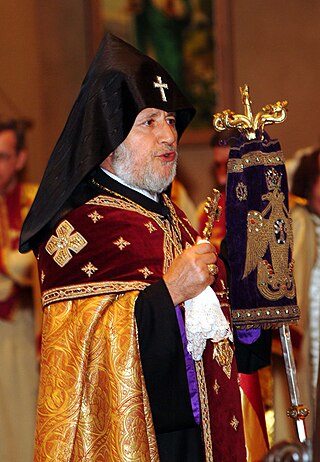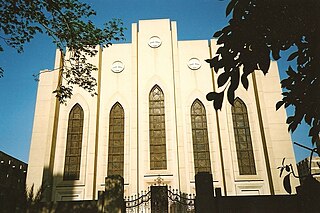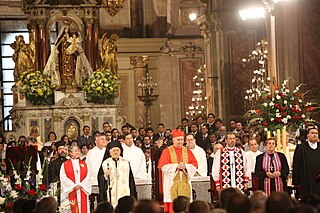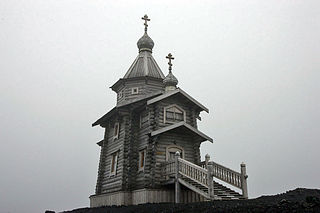Progress of the Dialogue
The first plenary meeting of the Joint Commission took place in Cairo in January 2004, and it has been meeting annually since that time. In January 2009, at its sixth meeting, the Commission finalized its first agreed statement, entitled "Nature, Constitution, and Mission of the Church." It treats some fundamental themes in ecclesiology such as the relationship between the Trinity and the Church, attributes of the Church, Bishops in Apostolic Succession, synodality and primacies in the Church, and the Church’s mission. The text also outlines a number of areas that need further study, and will be considered at a future stage of the dialogue.
At its seventh meeting in January 2010, the commission focused on the ways in which the full communion that existed between the Catholic and Oriental Orthodox churches up to the mid-fifth century was expressed. This study continued at the eighth meeting of the commission, which took place in Rome in January 2011, and at the ninth meeting in Addis Ababa, Ethiopia, in January 2012. At the Addis Ababa meeting a subcommittee was established with the task of preparing a draft common text on this topic. The subcommittee met in Rome in September 2012 and produced a preliminary draft text for consideration at the tenth meeting, held in Rome in January 2013. At the 2013 meeting the draft was examined, and new papers were presented on the common veneration of saints as a sign of full communion among the churches. The eleventh meeting took place from January 28 to February 1, 2014, in Pampakuda, Kerala State, India, hosted by the Malankara Orthodox Syrian Church. Papers were presented on the development of eucharistic prayers and pilgrimages as signs of full communion in the early centuries, and more work was done on the proposed agreed statement. The results of those studies were incorporated into the draft text which was considered again at the twelfth meeting, which took place in Rome from January 25 to 30, 2015. After a number of further amendments were made, the document was approved for publication. Its full title is "The Exercise of Communion in the Life of the Early Church and its Implications for our Search for Communion Today."
At the January 2015 Rome meeting and again in Cairo in February 2016 papers were presented on the Sacraments of Initiation. The Commission met in Rome for its Fourteenth Meeting from January 23 to 27, 2017. The main theme of that meeting was the Eucharist. The Fifteenth Meeting took place in Etchmiadzin, Armenia, from January 29 to February 4, 2018, and was hosted by the Catholiosate of All Armenians. Papers were presented on the sacraments of Holy Orders, Penance (reconciliation) and Anointing of the Sick. The sixteenth meeting took place in Rome January 27 to February 2, 2019, and was devoted to a study of the sacrament of marriage. Due to the death of Metropolitan Bishoy the previous October, the Oriental Orthodox members chose Bishop Kyrillos of the Coptic Orthodox Church as the new Oriental Orthodox Co-Chairman. The seventeenth meeting took place in late January 2020 in Atchaneh, Lebanon, hosted by the Syrian Orthodox Church. It focused on the nature and number of the sacraments, and set in motion the drafting of an eventual agreed statement on the sacraments. The eighteenth meeting is to take place in Rome in late January 2021.

The Coptic Orthodox Church,, also known as the Coptic Orthodox Patriarchate of Alexandria, is an Oriental Orthodox Christian church based in Egypt. The head of the church and the See of Alexandria is the pope of Alexandria on the Holy Apostolic See of Saint Mark, who also carries the title of Father of fathers, Shepherd of shepherds, Ecumenical Judge and the 13th among the Apostles. The See of Alexandria is titular. The Coptic pope presides from Saint Mark's Coptic Orthodox Cathedral in the Abbassia District in Cairo. The church follows the Coptic Rite for its liturgy, prayer and devotional patrimony. Adherents of the Coptic Orthodox Church make up Egypt's largest and most significant minority population, and the largest population of Christians in the Middle East and North Africa (MENA). They make up the largest percentage of approximately 20 million Christians in Egypt
Full communion is a communion or relationship of full agreement among different Christian denominations or Christian individuals that share certain essential principles of Christian theology. Views vary among denominations on exactly what constitutes full communion, but typically when two or more denominations are in full communion it enables services and celebrations, such as the Eucharist, to be shared among congregants or clergy of any of them with the full approval of each.

The Catholicos of All Armenians is the chief bishop and spiritual leader of Armenia's national church, the Armenian Apostolic Church, and the worldwide Armenian diaspora. The Armenian Catholicos is also known as the Armenian Pontiff and by other titles. According to tradition, the apostles Saint Thaddeus and Saint Bartholomew brought Christianity to Armenia in the first century. Saint Gregory the Illuminator became the first Catholicos of All Armenians following the nation's adoption of Christianity as its official religion in 301 AD. The seat of the Catholicos, and the spiritual and administrative headquarters of the Armenian Church, is the Mother See of Holy Etchmiadzin, located in the city of Vagharshapat.

Pope Shenouda III was the 117th Pope of Alexandria and Patriarch of the See of St. Mark. His papacy lasted 40 years, 4 months, and 4 days, from 14 November 1971 until his death.

The Eastern Catholic Churches or Oriental Catholic Churches, also called the Eastern-Rite Catholic Churches, Eastern Rite Catholicism, or simply the Eastern Churches, are 23 Eastern Christian autonomous particular churches of the Catholic Church, in full communion with the Pope in Rome. Although they are distinct theologically, liturgically, and historically from the Latin Church, they are all in full communion with it and with each other. Eastern Catholics are a distinct minority within the Catholic Church; of the 1.3 billion Catholics in communion with the Pope, approximately 18 million are members of the eastern churches.

The Ethiopian Orthodox Tewahedo Church is the largest of the Oriental Orthodox Churches. One of the few Christian churches in sub-Saharan Africa originating before European colonization of the continent, the Ethiopian Orthodox Tewahedo Church dates back to the acceptance of Christianity by the Kingdom of Aksum in 330, and has between 36 million and 51 million adherents in Ethiopia. It is a founding member of the World Council of Churches. The Ethiopian Orthodox Tewahedo Church is in communion with the other Oriental Orthodox churches.

The Coptic Catholic Church is an Eastern Catholic particular Church in full communion with the Catholic Church. Along with the Ethiopian Catholic Church and Eritrean Catholic Church, it belongs to the Alexandrian liturgical tradition. Uniquely among the Alexandrian Rite Eastern Catholic liturgies, the Coptic Catholic Church uses the Coptic Rite and the Coptic language in its liturgy; the Ethiopian Catholic Church and Eritrean Catholic Church use the Ge'ez Rite.
A catholicos is the head of certain churches in some Eastern Christian traditions. The title implies autocephaly and, in some cases, it is the title of the head of an autonomous church. The word comes from ancient Greek καθολικός, derived from καθ' ὅλου from κατά and ὅλος, meaning "concerning the whole, universal, general"; it originally designated a financial or civil office in the Roman Empire.
Miaphysitism is the Christological doctrine that holds Jesus, the "Incarnate Word, is fully divine and fully human, in one 'nature' (physis)." It is a position held by the Oriental Orthodox Churches and differs from the Chalcedonian position that Jesus is one "person" in two "natures", a divine nature and a human nature (dyophysitism).
The Pontifical Commission Ecclesia Dei was a commission of the Catholic Church established by Pope John Paul II's motu proprioEcclesia Dei of 2 July 1988 for the care of those former followers of Archbishop Marcel Lefebvre who broke with him as a result of his consecration of four priests of his Society of St. Pius X as bishops on 30 June 1988, an act that the Holy See deemed illicit and a schismatic act. It was also tasked with trying to return to full communion with the Holy See those traditionalist Catholics who are in a state of separation, of whom the Society of Saint Pius X (SSPX) is foremost, and of helping to satisfy just aspirations of people unconnected with these groups who want to keep alive the pre-1970 Roman Rite liturgy.

The Catholic Church has engaged in the modern ecumenical movement especially since the Second Vatican Council (1962–1965) and the issuing of the decree Unitatis redintegratio and the declaration Dignitatis humanae. It was at the Council that the Pontifical Council for Promoting Christian Unity was created. Those outside of the Catholic Church were categorised as heretics or schismatics, but in many contexts today, to avoid offence, the euphemism "separated brethren" is used.

Eritrea as a country and the Eritrean community are multi-religious. Eritrea has two dominant religions, Christianity and Islam.
Oriental Orthodoxy is the communion of Eastern Christian Churches that recognize only three ecumenical councils—the First Council of Nicaea, the First Council of Constantinople and the Council of Ephesus. They reject the dogmatic definitions of the Council of Chalcedon. Hence, these Churches are also called Old Oriental Churches or Non-Chalcedonian Churches.

The Oriental Orthodox Churches are Eastern Christian churches adhering to Miaphysite Christology, with approximately 50 million members worldwide. The Oriental Orthodox Churches adhere to the Nicene Christian tradition. Oriental Orthodoxy is one of the oldest branches in Christianity.

The Joint International Commission for Theological Dialogue Between the Catholic Church and the Eastern Orthodox Church was established by the Holy See and 14 autocephalous Orthodox churches.

Christianity in the 21st century is characterized by the pursuit of church unity and the continued resistance to persecution and secularization.
The following outline is provided as an overview of and topical guide to the Catholic Church:

Ibrahim Isaac Sidrak is the current Coptic Catholic Patriarch of Alexandria.

Yoannis Lahzi Gaid is a Coptic Catholic priest who has served since April 2014 as second personal secretary to Pope Francis. He is the first Eastern Catholic to hold the position.

Pope Francis has had main contacts with those of other Christian faiths, with those of other religious beliefs, and with non-believers.














